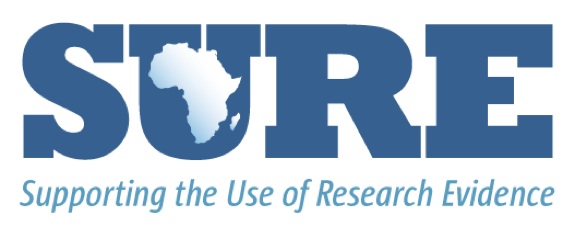Evidence based Policy Briefs - WHO
Evidence based Policy Briefs - WHO
Organization: SURE (Supporting the Use of Research Evidence)
- Builds on and supports the Evidence-Informed Policy Network (EVIPNet) in Africa and the Region of East Africa Community Health (REACH) Policy Initiative.
- Involves teams of researchers and policymakers in seven African countries and is supported by research teams in three European countries and Canada.
- Funded by the European Commission’s 7th Framework Programme.
Purpose: To support WHO to strengthen evidence-informed policy making in Africa[1].
Content:
- Evidence Briefs are based on global research evidence (from systematic reviews) and local evidence to inform policy dialogue on health policies and programmes.
- The briefs include a description of a policy problem, summary of the best available evidence, clarification on the size and nature of the problem, description of the likely impacts of key options for addressing the problem, and information about potential barriers to implement the options and strategies.
[1] Focus on Burkina Faso, Cameroon, Central African Republic, Ethiopia, Mozambique and Zambia and the REACH (Regional East African Community Health) Policy Initiative

